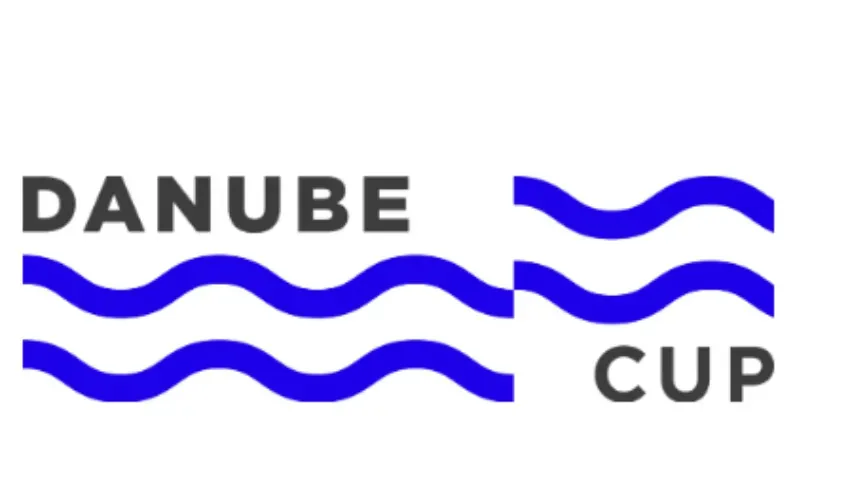The Danube Cup, established in 2016 by Corvinus University of Budapest and the Budapest University of Technology and Economics (BME), is an annual student innovation start-up competition involving 11 universities along the Danube. BCCI has been supporting this great initiative since 2023.
Dr Pál DANYI, university lecturer (BME), Mónika HARSÁNYI, Head of the International Project Office (BCCI), and János VECSENYI, Professor Emeritus (Corvinus University), honorary professor (BME), spoke about the initiative.
Since when have you been part of the Danube Cup, and what ideas inspired your cooperation?
Pál Danyi: We founded the Danube Cup in 2016 as a start-up competition for BME and Corvinus students. We launched its international expansion in 2019. Our aim was to foster connections between students from the two institutions while stepping outside the classroom environment and promoting entrepreneurship and start-ups in a playful, engaging way.
János Vecsenyi: The first competition was held in 2016 between BME and Corvinus, with student teams pitching business ideas validated by market research. Seeing the enthusiasm and great ideas, in 2019 we invited the Vienna University of Technology to join. That’s how the Danube Cup was born. Although the Viennese team won that first international event, they later stepped away. So we hit the road—through Vienna, Linz, Regensburg, all the way to Passau—visiting the region’s key universities and convincing them to participate. In 2020, they joined us, and even the University of Belgrade took part—and won.
Mónika HARSÁNYI: Supporting early-stage businesses is a key priority for BCCI, which is why, since 2023, we’ve been supporting the Danube Cup through international project coordination and communications assistance. In 2025, we’re also providing financial support, as we believe students from the universities along the Danube are eager to take part in this inspiring competition that can energize the start-up ecosystem.
What are the professional links between your institution and the Danube Cup?
Pál Danyi: BME, as co-owner of the Danube Cup brand, provides professional and financial support, hosts events, and helps with communication and dissemination of success stories.
János Vecsenyi: Corvinus, alongside BME, prepares student teams through entrepreneurship courses at the bachelor’s and master’s level, organizes the national – and this year also the international – competitions, hosted the first research conference, and coordinates the international collaboration.
Mónika HARSÁNYI: BCCI’s cooperation with higher education institutions and its support of the Danube Cup share the same goals: facilitating knowledge transfer and supporting future knowledge-based entrepreneurs and business communities. In the case of the Danube Cup, the focus is on future entrepreneurs or early-stage start-up founders.
How do you see the Danube Cup’s development, what is its essence, and what future plans are in place?
Pál Danyi: The Danube Cup has become a real success story. As a grass-root, socially-driven initiative, it managed to engage international universities, hundreds of students, teachers, and professionals, creating a vibrant community. It has identified a gap in university-level entrepreneurship education and built a sustainable body to address it. The network is growing, as seen in the ongoing expansion and increasing interest in joining the partnership. The future goal is to lay the foundations for further expansion. International cooperation could also be strengthened through the development of cross-border entrepreneurship education programs.
János Vecsenyi: The focus is on innovation, international expansion, and a strong market research foundation – this has deepened how universities prepare students. The participant base is expanding: the universities of Bratislava and Győr and another Regensburg university have joined. Danube Cup is no longer just a competition—this year, we are hosting our third research conference to explore entrepreneurship and entrepreneurial education in the region. Currently, only universities located directly along the Danube River can become members, but once a solid financial framework is in place, we’ll consider including institutions from tributaries or the broader Danube watershed.
Mónika HARSÁNYI: The strength of the Danube Cup is in the Danube region itself and the university network rallying around a shared mission. It gives students the opportunity to compete, develop their business ideas, and get feedback from professionals in both the academic and business sphere. Our goal is to see the business ideas that have emerged from this initiative take a foothold in the market and become financially viable.
Could you please list five keywords that best capture the essence of the Danube Cup?
Pál Danyi: International university network; a strong Central European educational brand; shaping student mind-set; value creation; scientific research and conference organization.
János Vecsenyi: International perspective; cooperation and competition; innovative entrepreneurship; entrepreneurial students and faculty; developing mindful entrepreneurs.
Mónika HARSÁNYI: International community; business idea; idea competition; validation; collaboration.
Thank you for the interview, and we wish you continued success!
For more about Danube Cup go to: https://danubecup.eu/
